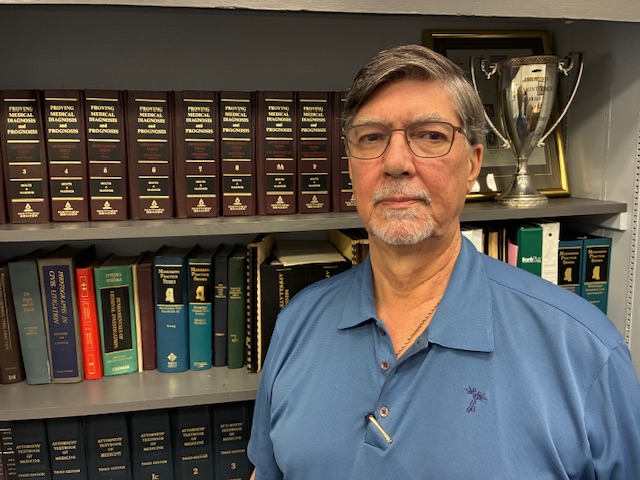Rebuilding roads, improving job skills key to Mississippi economy
Published 1:32 pm Tuesday, November 15, 2016

- Whitney Downard / The Meridian StarMore than 75 local business, health and education leaders attended the MEC Mississippi Connection presentation on Tuesday. Rebuilding roads and bridges and improving job skills can boost the economy, according to presenters.
Education, health and business leaders across Lauderdale County visited the Mississippi State University Riley Center in Meridian Tuesday morning to discuss state initiatives and policies aimed at improving Mississippi’s economy.
More than 75 representatives from Anderson Regional Health System, Meridian Community College, Structural Steel, Citizens National Bank, Mississippi Power and others attended the one-hour presentation from the Mississippi Economic Council’s Mississippi Connection tour.
Scott Waller, the MEC vice president and chief operating officer, introduced MEC’s four priorities: building a robust economy, supporting a healthy workforce, maintaining safe roads and bridges and creating a career-ready workforce.
According to the presentation, more than 4,000 bridges in Mississippi are deficient and 2,400 can no longer carry the weight they were designed to carry. Around 24,5000 lane miles of state roads are in need of repair and 13,192 miles of local roads are in poor condition.
“So what we’re seeing is we have a lot of roads that are in a condition that will require a lot of work to be fixed. It’s no longer sufficient that they require a thin overlay but the actual foundation of the road itself is gone – the road is going to have to be torn up completely and redone,” said Charles Busby, the House of Representatives chairman of transportation, in a video message.
“Public safety should be the number one driving force for what we do,” said Willie Simmons, the Highways and Transportation chair of the Senate. “That bridge could become a major, major problem and disaster waiting to happen.”
“The average mom comes up to a bridge in her van and assumes the government has done its job and has taken care of that bridge and those assumptions are not valid in the state of Mississippi at this time,” said Busby, stressing the need to start rebuilding state bridges and roads sooner rather than later.
As part of their Excelerate Mississippi program, MEC hopes to grow the economy through safer roads and stronger bridges. This would require an additional $375 million a year, with $300 million for state roads and bridges and the remaining $75 million for local needs.
This effort would add 4,000 construction jobs and nearly 7,000 other maintenance jobs, according to Waller, who called Excelerate Mississippi a “job plan” in that regard. Waller said this tax increase, if approved by lawmakers, would cost the average driver less than $2 a week while saving more than $10 a week in maintenance costs.
The interactive presentation allowed attendees to vote on questions and participate in a survey for MEC to present to state lawmakers. Questions included whether Mississippi was on the right track (73 percent said it was) and how best to improve a robust economy (50 percent said by improving Mississippi’s image).
To end, Waller discussed the Mississippi Scholars and Mississippi Scholars Tech Master programs. These programs encouraged students to pursue accelerated courses and gain the skills necessary to join the workforce.
At a small discussion group held after the presentation, potential employers and leaders in education discussed preparing students for careers, including developing a better work ethic and encouraging students to pursue technical degrees. Often these technical degrees, such as welding, pay nearly as much if not more than typical four-year degrees.
“We’ve got to change the perception that if someone doesn’t go to college they’re not going to be successful. Because that is just wrong,” Waller said. “There are careers out there that provide a good living or – particularly in the beginning (stages) – a much better living than someone with a four-year degree.”
Lynne Carey, the workforce project manager at MCC, attended the presentation and small-group discussion as part of MCC’s course development training and to gain feedback.
“(We need) students who are looking to enter the workforce to have a good work ethic. Who will come to work on time and when they get there, they’ll give a good day’s work to their employer,” Carey said.
“We come every year and over the last few years there’s been a change in the mindset of… the need for career technical-type training – really, across the nation but also within our state,” said Lucky Morgan, Carey’s coworker.
“But we’ve still got a ways,” Carey said.





